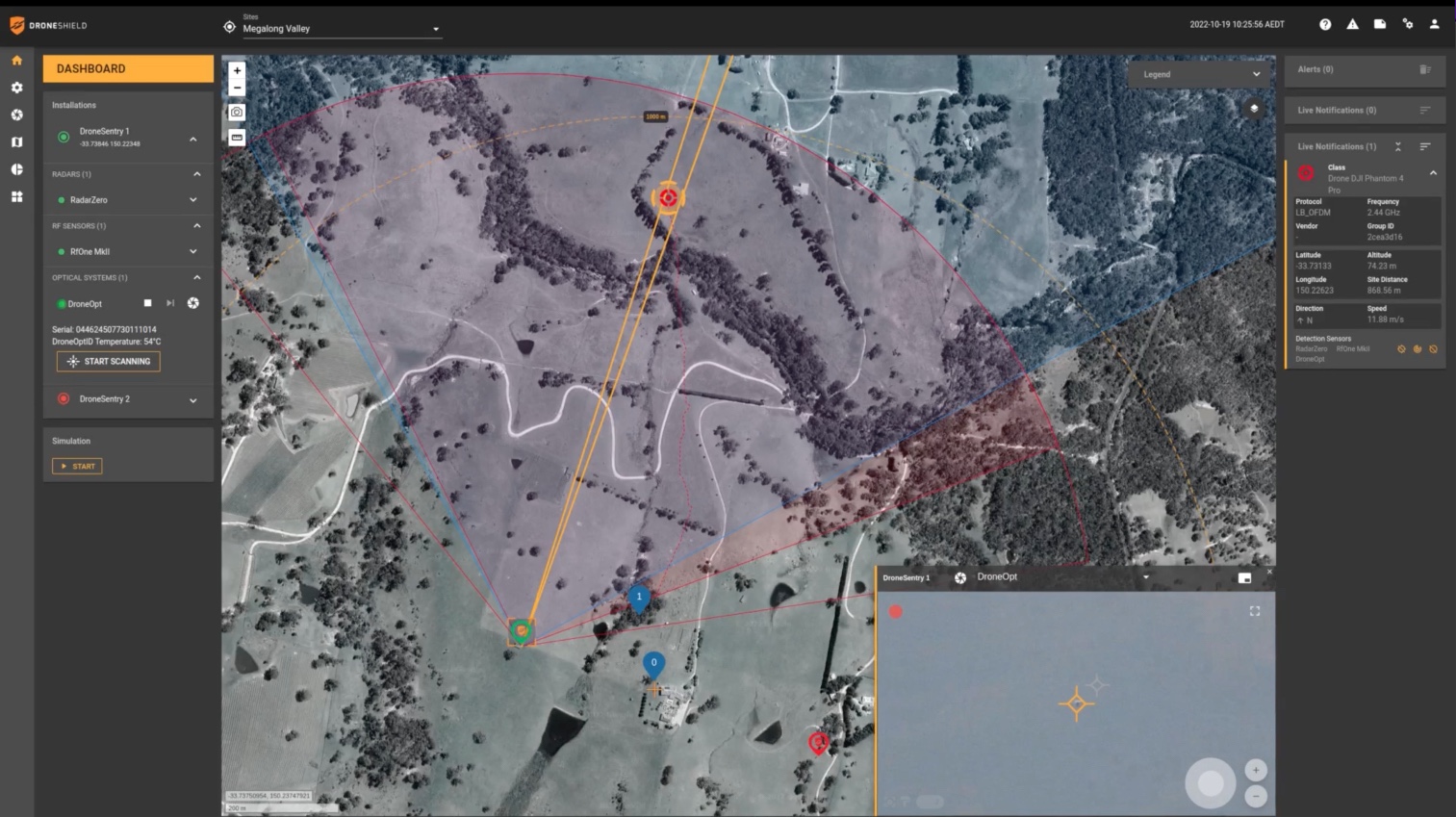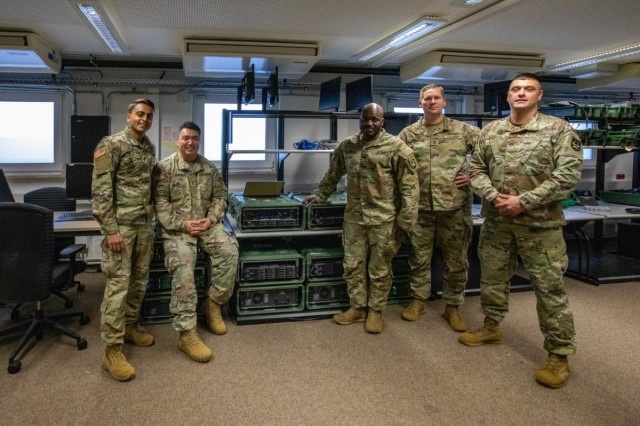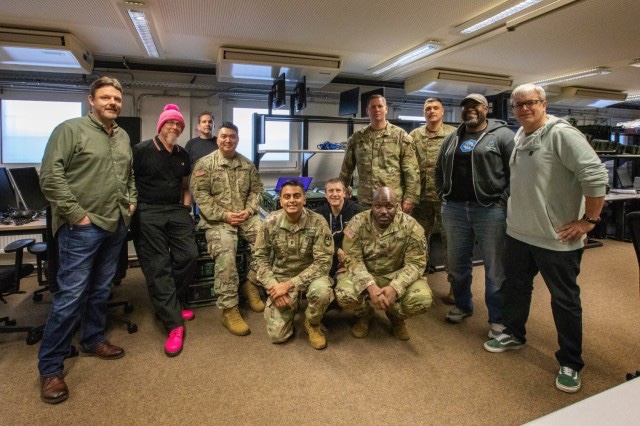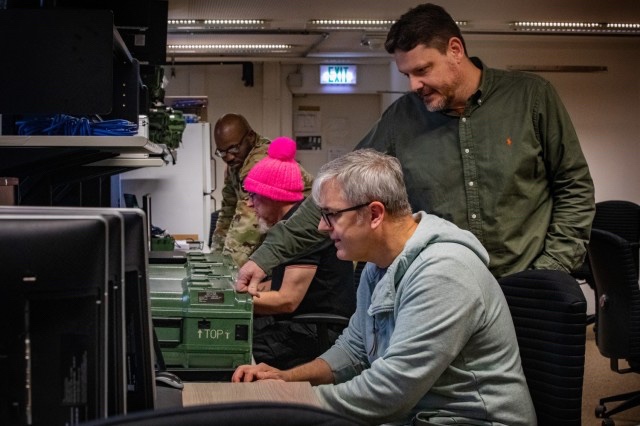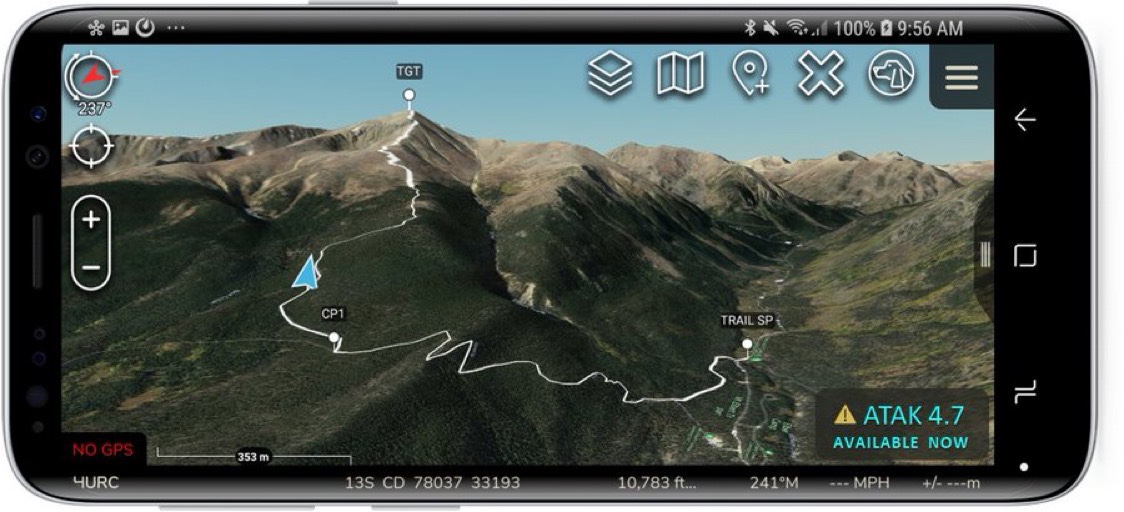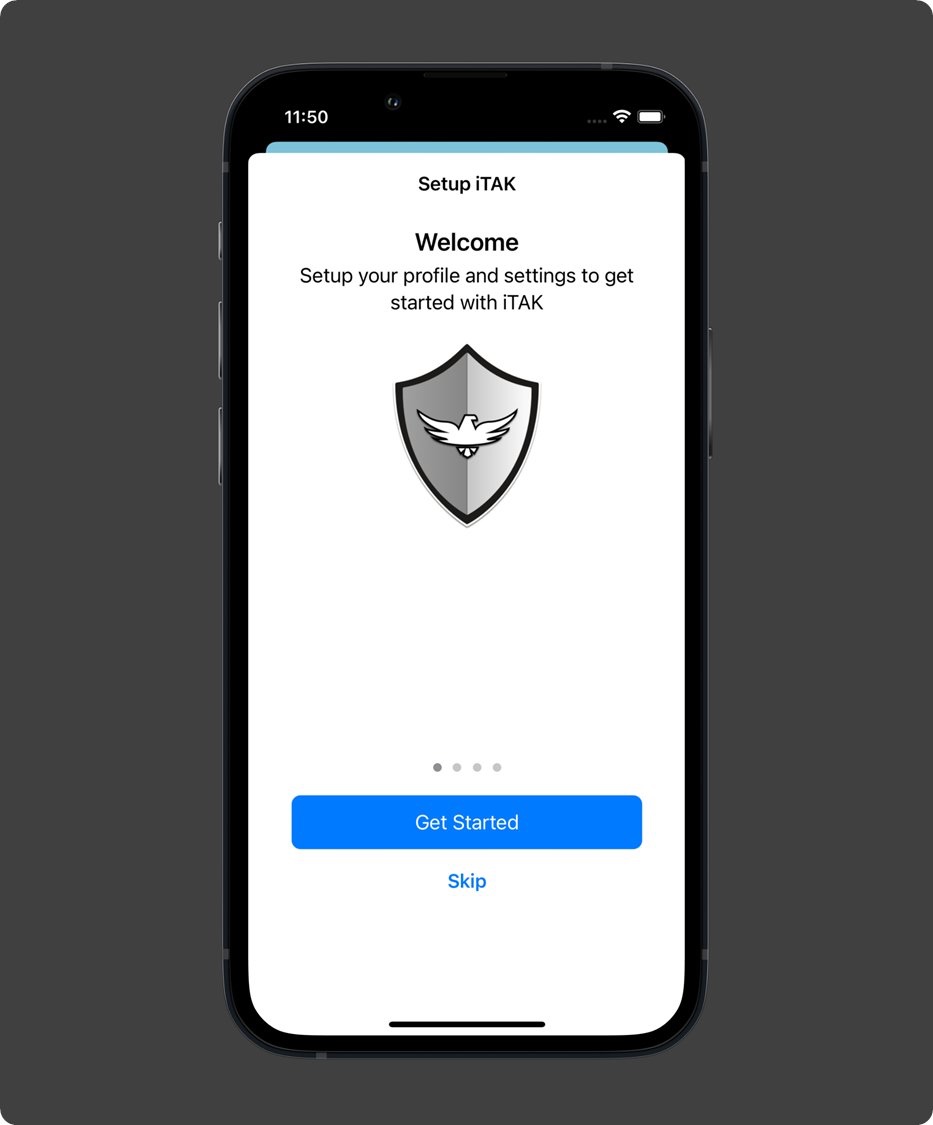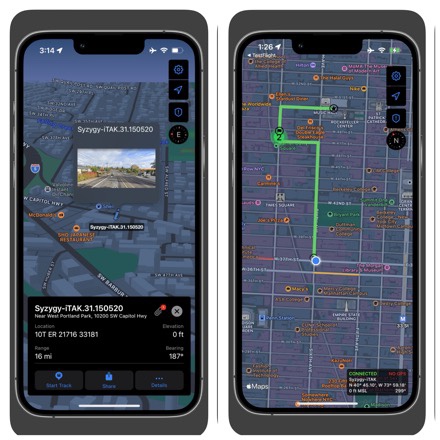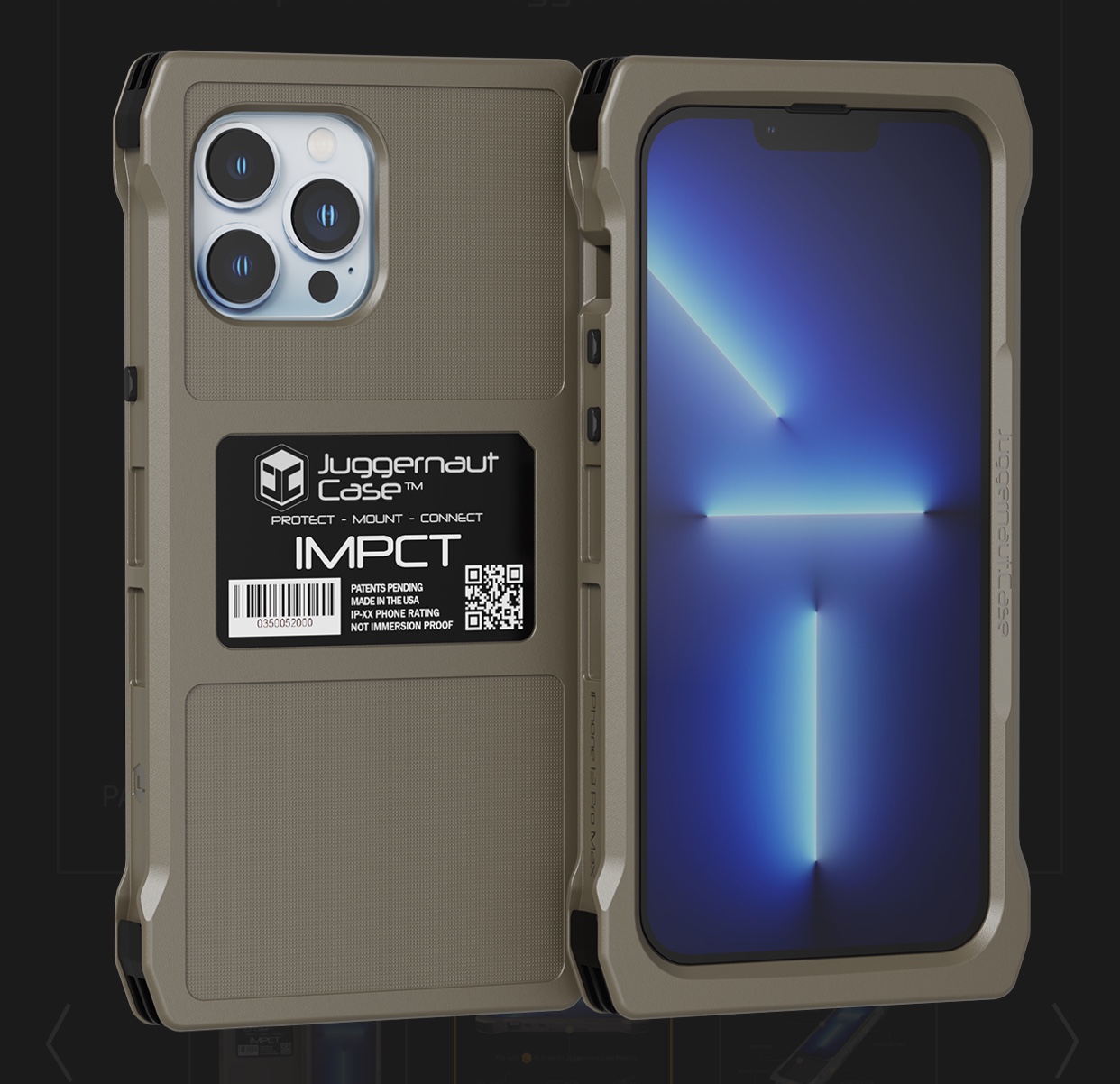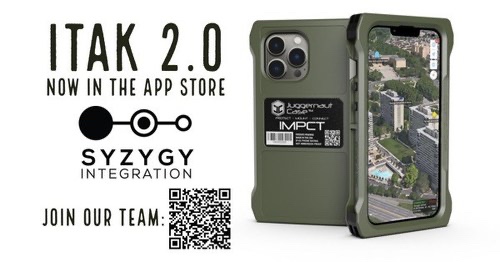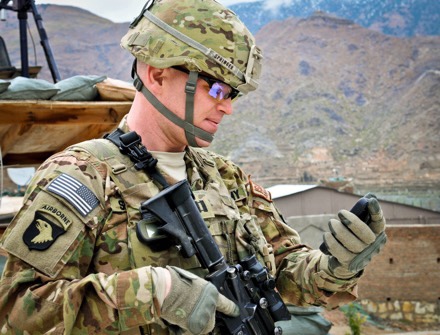Scotsdale, AZ May 23, 2022 The Tertia Optio, Hyper-awareness Enabled Battlespace, Advanced Digital Management and Networking System (HEBADMAN System) is a Mosaic Warfighter Network military infrastructure system including hardware support, software support and layered encryption in order to provide the warfighter, on all levels, with common operational cross-domain secure battlefield data enabling new levels of dynamic combat agility. It is a software networking suite designed for cell phone, internet of things (IoT) and desktop integration of military Command, Control, Computers, Communication, Cyber, Intelligences, Surveillance, Reconnaissance Networking (C5ISRNET) to provide a Commercial off-the-shelf (COTS) solution enabling tactical and strategic information advantage, battlefield dominance, speed of command and maximizing mission effectiveness in the Mosaic Battlefield Environment.
It does this by leveraging the latest in cellular phone hardware technologies advancements to integrate them with the latest cutting-edge redundant encryption algorithms, advancements in geo-spatial technologies, and cloud computing capabilities couching them all in a server-side mission adaptable, user-managed, user interface, and customizable to mission requirements in dynamic combat environments.
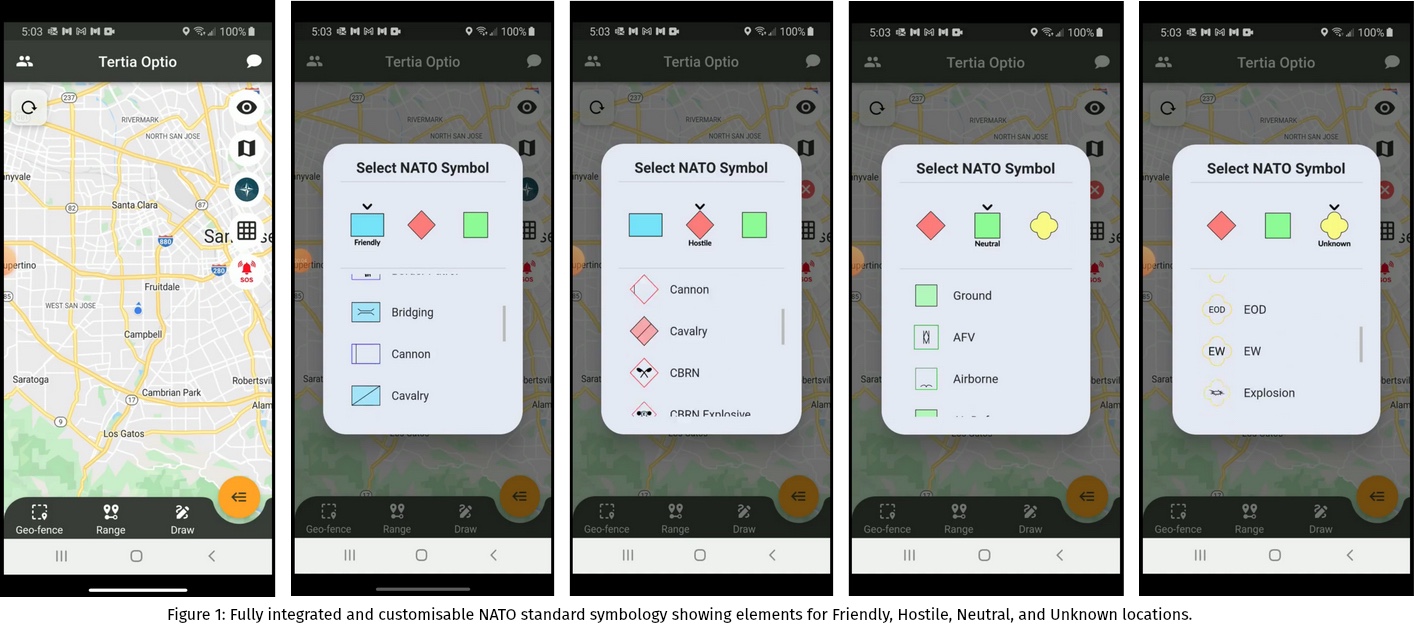
The goal of this technology is to enable the warfighter and Commanders access to immediate actionable intelligence and capabilities to fight and win in increasing electronics dominated battlefields, while simultaneously eliminating digital information vulnerabilities inherent to use of private or unsecured mobile communications within a widely interoperable common information operating environment.
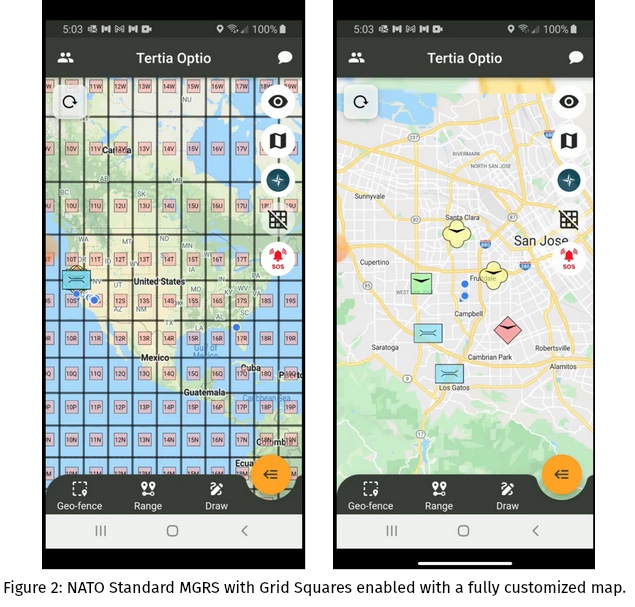
The system is nominally secured by end-to-end AES256 encryption, with cloud storage of encrypted signals until the target receiving device is available for download. This non-linear, elliptical curve encryption technology is considered secure by the US military for transmission of Top-Secret level signals. The data is then couched with-in a permissioned blockchain network, this decentralizes the network storage, maintains a permanent ledger and secures the already encrypted data. Then, and only then, is the data transmitted via Virtual Private Network (VPN) to the receiving nodes.
Features Included:
• Custom group building and tiering (operations): Enables units to be digitally structured in the system. A Battalion Commander could send directions to his whole Battalion simultaneously or pass down via the Chain of Command to all or a portion of his command, or in extreme cases could reach out directly to an individual Soldier via text or voice.
• Facial and fingerprint secure up-load (reporting): Using the High Value Identification (HVID) Module and a photo-capable, tactile capable phone, field sampling and upload of facial recognition features along with fingerprint scanning data to headquarters is completed in seconds for field identification of human high-value targets.
• HUMINT Contact Module (Reporting): Using elements from the HVID Module and the SPOTReporting modules, users are able to snap a photo of the individual(s) and their ID cards, fill out text space regarding said interaction and record the interaction which is then sent up the chain of command to be reviewed and filed.
• Contact reporting (reporting): Using the Contact Report Module, units in contact with the enemy can describe the enemy, their number and armaments, with accurate error-free location information instantly and silently. This module uses standard reporting formats such as; SALUTE, SALT and SPOT or user defined formats. Attached photos or video give Command an immediate visual snapshot of the contact situation.
• Medical Evacuation (support): The MEDEVAC Module allows service members on the ground to quickly and accurately, via dropdown menu, request Emergency Medical Evacuation, with no location transcription errors, silently. Using the touch-to-target function, this module also allows service member to select a requested pick-up zone away from their current location if they are moving rapidly in dynamic combat situations.
• Air support (support): The Close Air Support (CAS) Module allows service members to request CAS, select from a customizable menu the type of available CAS and using tap-to-target on the map request a specific target zone and approach vectors, additionally the target data could be sent and displayed on the aircrafts HUD for precise targeting or gun runs.
• Call for Fire Module (support): Similar to both the MEDEVAC and CAS functions, the Call for Fire uses a drop-down menu of the standardized Call for Fire request and tap-to-target functionality to request artillery support via their Tactical Operations Center (TOC). This streamlines the current multiple relay process where the request must be sent by radio after determining target’s location on a map the requestor radios their TOC, the TOC radio relays to the supporting Fire Direction Center (FDC), the FDC radio relays to the actual artillery squad who will aim and fire the gun. There are numerous opportunities for transcription errors in this system and it takes time. The Tertia Optio Call for Fire Module uniquely eliminates this problem by allowing the data to be sent through the system from the requestor to the gun crew in seconds, accurately and silently.
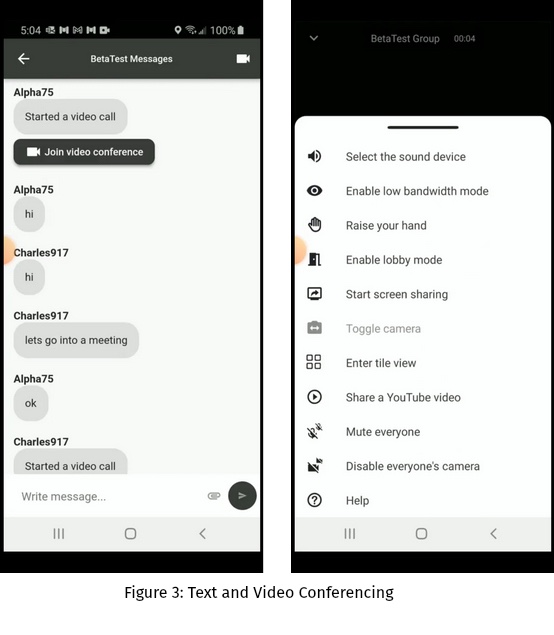
Six Industries also has just released for sale Emergency Management & Response (EMAR) to the Law Enforcement market as their Emergency Management System solution along the same vein as Tertia Optio. Contact Six Industries sales team at sales@six-industries.com to find out more information. Available in both Android and iOS today!
